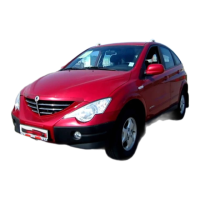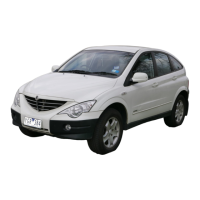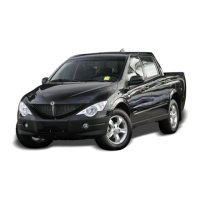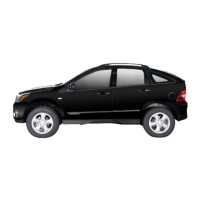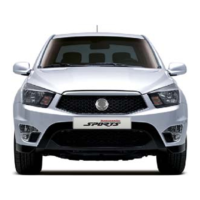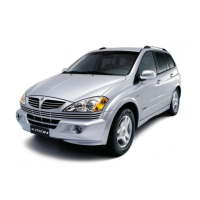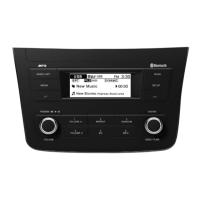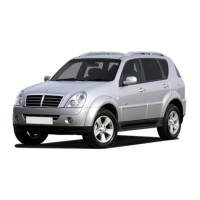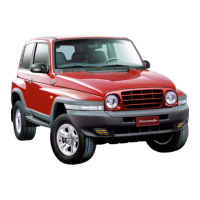IN CASE OF EMERGENCY
12-28
0
1
2
3
4
5
6
7
8
9
10
11
12
13
14
15
16
SAFETY CHAINS
Always attach safety chains between your vehicle and the
trailer. Cross the safety chains under the tongue of the trailer
so that the tongue will not drop to the road if it becomes
separated from the hitch. Follow the manufacturer’s recom-
mendation for attaching safety chains. Always leave just
enough slack to permit full turning. Never allow safety chains
to drag on the road.
BRAKE FLUID
Change the brake fluid every 15,000 km (9,000 miles) un-
der the following conditions.
- Towing a trailer frequently.
- Driving in hilly or mountainous terrain.
AUTOMATIC TRANSMISSION FLUID
More frequent maintenance is required if your vehicle tows
trailer frequently.
TOWING TIPS
When towing a trailer, your vehicle will handle differently
compared with normal driving condition.
For safety, observe the following precautions:
• Practice turning, stopping, and reversing before you be-
gin towing in traffic.
Do not tow in traffic until you are confident that you can
handle the vehicle and trailer safely.
• Before driving, make sure that the lighting system of the
trailer works properly.
• Do not drive faster than 90 km/h.
• Make sure that you have enough room when cornering and
avoid sudden maneuvers.
• Avoid abrupt starts, acceleration or stops.
• Avoid sharp turns or lane changes.
• Always have someone guide you when reversing.
• Allow adequate stopping distance.
Stopping distance is increased when you tow a trailer.
• Avoid holding the brake pedal down too long or too
frequently, which will cause the brakes to overheat and
result in reduced brake efficiency.
• Always block the wheels on both vehicle and trailer when
parking. Apply the parking brake firmly.
• Parking on a steep slope is not recommended.
You really should not park your vehicle, with a trailer
attached, on a hill.
If something goes wrong, such as the trailer/caravan hitch
becoming disengaged, people can be injured and both
the vehicle and trailer can be damaged.
• If someone removing the blocks stands directly behind the
trailer, he could be injured. If your brakes or the hitch
slipped, the trailer could roll backward. Make sure anyone
removing blocks from your wheels stands to one side.
• Take note of trailer manufacturer’s instructions.
Q100-12-In Case of Emergency.p65 2006-10-02, ¿ÀÈÄ 3:08Page 28 Adobe PageMaker 6.5K/Win
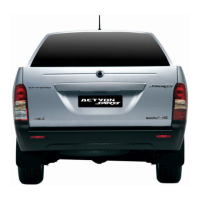
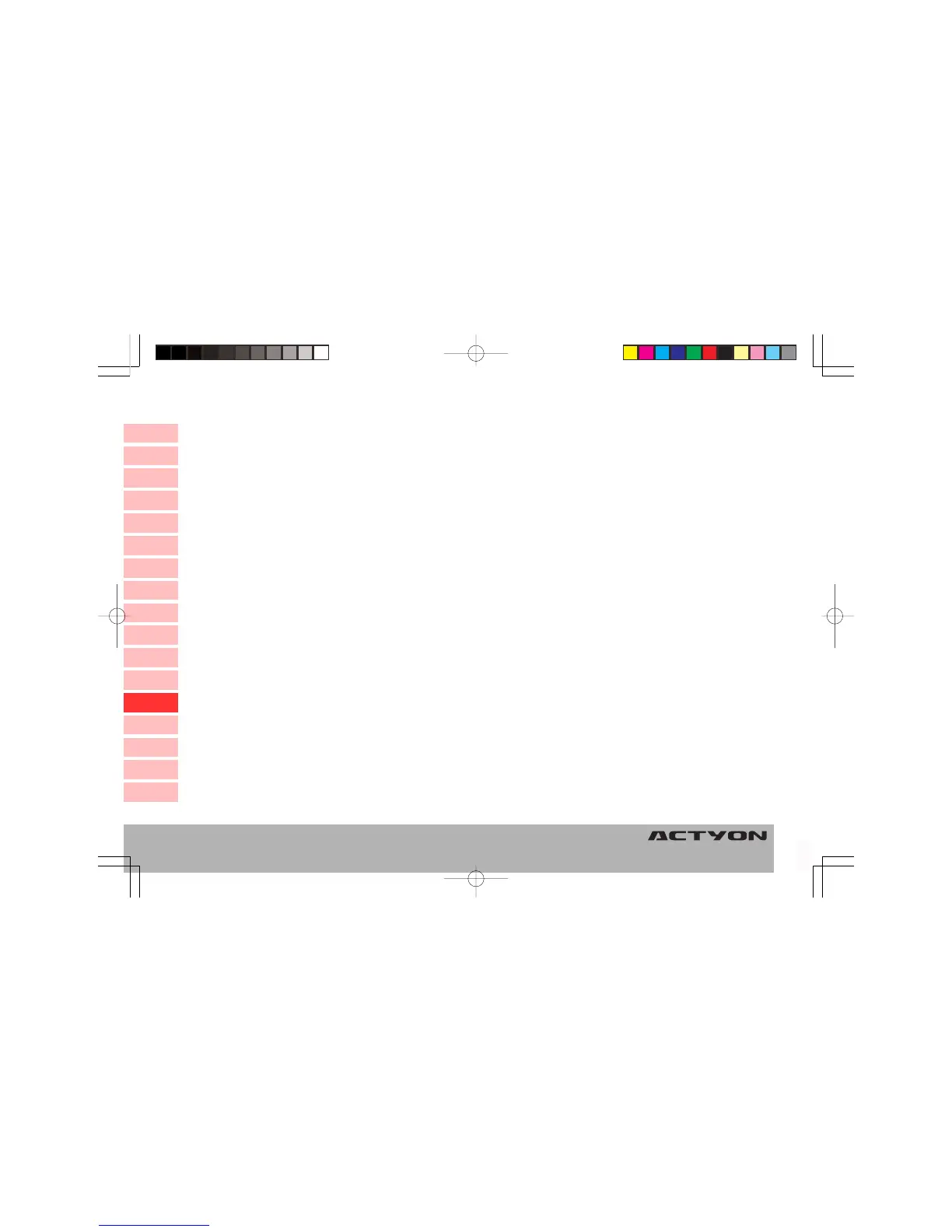